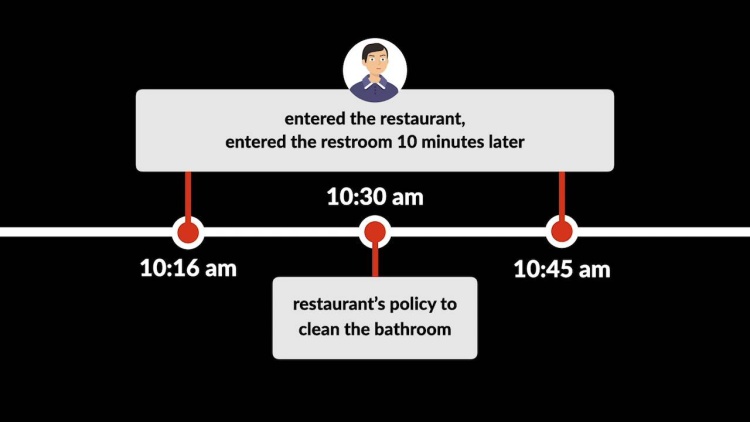Lane v. Hardee’s Food Systems, Inc.
United States Court of Appeals for the Seventh Circuit
184 F.3d 705 (1999)
- Written by DeAnna Swearingen, LLM
Facts
On November 2, 1995, Donald Lane (plaintiff) visited a Hardee’s Restaurant in Harrisburg, Illinois. Lane estimated that at either 10:26 a.m. or 10:45 a.m., he went into the restroom, slipped on the wet floor, and was injured. Lane sued Hardee’s Food Systems, Inc. (Hardee’s) (defendant) on a negligence theory in federal court. At trial, Hardee’s managers Judy Rochford and Kim Thompson testified that bathroom cleanliness was important and therefore the restaurant’s policy was to clean the restrooms each day at 10:30 a.m., at the end of breakfast. Thompson said that each time she mopped the floor, she put out a wet-floor sign to warn customers of the danger. Lane claimed that there was no sign indicating that the floor was wet at the time of the accident. Thus, Lane’s theory was that an employee had negligently mopped the floor and failed to give customers an adequate warning. After Lane presented his case, Hardee’s moved for a judgment as a matter of law (JMOL). The judge granted the motion on the ground that Lane had failed to provide evidence that a Hardee’s employee, rather than a customer, had left the water on the floor. Lane appealed to the United States Court of Appeals for the Seventh Circuit.
Rule of Law
Issue
Holding and Reasoning (Flaum, J.)
What to do next…
Here's why 909,000 law students have relied on our case briefs:
- Written by law professors and practitioners, not other law students. 47,100 briefs, keyed to 997 casebooks. Top-notch customer support.
- The right amount of information, includes the facts, issues, rule of law, holding and reasoning, and any concurrences and dissents.
- Access in your classes, works on your mobile and tablet. Massive library of related video lessons and high quality multiple-choice questions.
- Easy to use, uniform format for every case brief. Written in plain English, not in legalese. Our briefs summarize and simplify; they don’t just repeat the court’s language.





